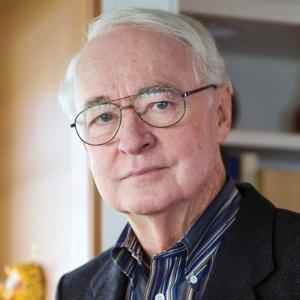 |
Wilson |
Long Beach native and political scientist James Q. Wilson, whose “broken windows” theory on crime-fighting helped trigger a nationwide move toward community policing, died Friday at a Boston hospital. He was 80.
A hospital spokeswoman said Wilson died at Beth Israel Deaconess Medical Center. He was being treated for leukemia, according to Peter Skerry, a family friend and Boston College political science professor.
Wilson ― recipient of the Presidential Medal of Freedom in 2003 ― wrote or co-authored more than a dozen books on various topics, but his study of police work and the importance of quickly attacking even small signs of disorder have resonated for decades. He was a distinguished scholar in Boston College’s political science department at the time of his death.
The ideas in his 1982 “Broken Windows” article in the Atlantic influenced successful community policing efforts in cities including New York and Los Angeles.
“He’s just clearly one of the foremost social scientists of the second half of the 20th century,” Skerry said. “He was a very on-the-ground kind of scholar and brought a great insight and common sense to things.”
Wilson grew up in North Long Beach and graduated from Jordan High School. He credited two teachers ― Walter Smith, a math teacher, and Robert Crossman, his speech teacher ― at Jordan with helping to launch his career in higher education.
Of Crossman, Wilson once said the teacher could “explain to me things I didn’t realize I wanted to know the answer to until he tried to tell me what the problem was ... he enabled me to discover a bit of myself ― the ability to do something independently.”
Wilson and co-author George L. Kelling gained attention for their theory that communities must address minor crimes and their effects, such as broken windows, to prevent larger problems from developing.
“I think Jim and I caught a wind,” Kelling said in an interview Friday. “Up until that time in policing, nothing seemed to work. ... By the late ‘70s, policing was kind of looking for a new approach and community policing was kind of on the horizon, although not yet being really articulated.”
Kelling said the article instantly resonated with law enforcement and also caught the general public’s attention because the “broken windows” metaphor was so effective.
The article was based on firsthand research ― Kelling walked the beat alongside Newark, New Jersey, police during the 1970s ― as well as the work of other scientists. In it, Wilson and Kelling argued that policing had historically been about maintaining order, but had become overly focused on solving serious crimes.
Police had shied away from walking patrols, becoming walled-off in cruisers and paying little attention to minor offenses in communities that created a sense of disorder, such as breaking windows, they said.
They argued the crime of vandalism wasn’t as damaging as the message the broken window sent about the community, leading to more serious crimes there.
The article concluded, “Police ought to protect communities as well as individuals. ... Just as physicians now recognize the importance of fostering health rather than simply treating illness, so the police ― and the rest of us ― ought to recognize the importance of maintaining, intact, communities without broken windows.”
William Bratton, former New York City police commissioner and Los Angeles police chief, said police need more than a “broken windows” strategy to prevent more serious crime, but the success he’s seen in cities where he worked wouldn’t have happened without it.
Wilson taught at Harvard for 26 years, then moved in the late 1980s back to California to teach at UCLA and Pepperdine. He later returned to New England to be closer to his two children and grandchildren. (AP)







![[Weekender] Korea's traditional sauce culture gains global recognition](http://res.heraldm.com/phpwas/restmb_idxmake.php?idx=644&simg=/content/image/2024/11/21/20241121050153_0.jpg)
